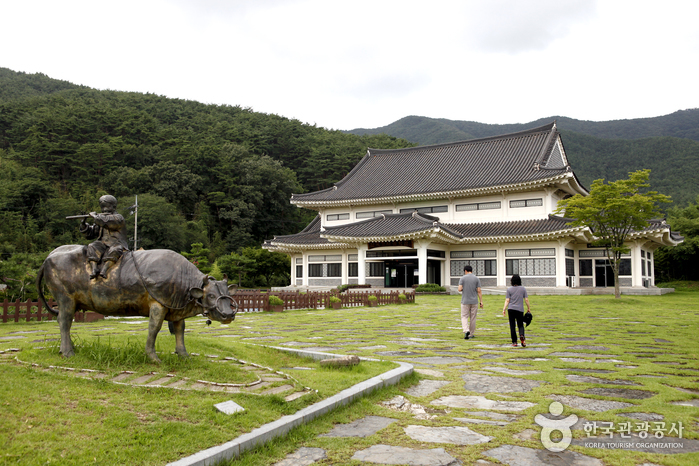Welcome to the Korea Gasa Literature Collection, a treasure trove of historical literature and artifacts located in the charming town of Damyang, Jeollanam-do. As a tourist, you are in for a delightful journey into the world of Gasa culture, which has played a significant role in shaping Korean literature.
Step into the collection’s main building, where you will be greeted by a serene ambiance that instantly transports you to the past. This beautifully designed museum showcases a wide array of historical literature, including notable works such as “Myeonangjip” by Song Sun and “Songgangjip” by Jeong Cheol. These collections of Gasa poems provide a fascinating glimpse into the rich artistic and cultural heritage of Korea.
The Gasa Literature Collection boasts an impressive collection of 11,461 artifacts and literature related to Gasa culture. As you explore the museum, you will discover intricate calligraphy, exquisite paintings, and carefully preserved manuscripts. Each artifact tells a story, offering a deeper understanding of the historical significance of Gasa in Korean society.
Make sure to visit the souvenir shop, where you can find unique gifts and mementos to bring back home. From traditional handicrafts to beautifully designed stationery, these souvenirs are a perfect way to commemorate your visit and share the beauty of Gasa culture with your loved ones.
After immersing yourself in the world of Gasa literature, take a moment to relax and rejuvenate at the traditional tea house within the collection. Savor the flavors of Korean tea while basking in the serene atmosphere, allowing the tranquility of the surroundings to further enrich your experience.
Whether you are a literature enthusiast, history buff, or simply a curious traveler, the Korea Gasa Literature Collection offers an unforgettable journey into the heart of Korean culture. With its vast collection of artifacts, carefully curated displays, and warm hospitality, this museum is a must-visit destination for anyone seeking to explore the rich tapestry of Korea’s literary heritage.
We hope you enjoy your visit to the Gasa Literature Collection and leave with a deeper appreciation for the artistry and significance of Gasa culture.

